PRELUDE
A mother dies. The family mourns. The seasons pass.
ACT I: THE HOME OF THE BAILIFF
Wetzlar, Germany, early July. The newly widowed Bailiff is, oddly, rehearsing a Christmas carol with his young children on a warm summer evening. Since the death of his wife, his eldest daughter, Charlotte, has been looking after the family. Two of his drinking friends stop by and discuss the young poet Werther, who is to escort Charlotte to a ball that evening. They also ask about Charlotte’s absent fiancé, Albert. After they have gone into the house, Werther appears and reflects on the beauty of nature. Charlotte returns, dressed for the ball, and Werther watches as she gives the children a treat and then leaves them in the care of Sophie, her 15-year-old sister. Deeply touched by the idyllic scene, Werther departs with Charlotte. The Bailiff sets off to join his friends at the inn and Sophie remains alone as night falls. She is surprised by the arrival of Albert, who has returned after a long absence. They talk happily of his impending marriage to Charlotte and go off into the house.
Charlotte and Werther dance at the ball, entranced by each other. In the moonlight, they return to the Bailiff’s house. Werther praises Charlotte’s beauty and devotion to her family; she remembers her mother. Werther passionately declares his love for her and they are about to kiss when the Bailiff calls out from the house that Albert is back. The spell is broken. Charlotte admits that he is the man she promised her dying mother to marry. Werther is devastated.
ACT II: THE LINDEN TREES
It is late September and the 50th anniversary of the Pastor’s marriage is being celebrated in the village. Charlotte and Albert have been married for three months. Werther has maintained a friendship with them but is tormented by the idea that Charlotte belongs to another man. Albert tells him that he understands why Werther is so depressed: he knows all too well what it would mean to lose her. Werther assures him that he only feels friendship for them both. Sophie enters and happily invites Werther for a dance but he evades her. When Charlotte appears he cannot prevent himself from speaking of his love and recalls their first meeting. Charlotte reminds him of her duties as a wife. For both of their sakes, she says, he must leave town and not return until Christmas. Alone, Werther gives in to his despair, musing on the idea of suicide. Sophie returns to invite him to the festivities but he brusquely replies that he is departing forever and rushes off, leaving her in tears. When Sophie passes on the news, Albert realizes that Werther is still in love with Charlotte. The celebration for the wedding anniversary begins.
ACT III: ALBERT’S HOUSE
Christmas Eve. Charlotte obsessively re-reads Werther’s letters, admitting to herself that she still loves him as much as he loves her. Sophie arrives and tries to cheer her up, but Charlotte gives in to her despair. Suddenly Werther appears, utterly desolate. Together they evoke tender memories of playing the piano and reading poetry together. Werther tells her that he’s still in love with her and that she must admit that she loves him. He becomes increasingly wild and she becomes fearful, torn between giving in to him and escaping from him. He struggles with her, then kisses her. She panics and runs from the room, telling him they will never meet again. Left without hope, Werther declares she has delivered a sentence of death and leaves. Albert returns, knowing that Werther has come back. He questions Charlotte as a servant hands him a note from Werther: he is going on a long journey and asks to borrow Albert’s pistols. Albert orders his wife to hand them over. As soon as Albert leaves the room, Charlotte rushes off to save Werther.
INTERLUDE: CHRISTMAS EVE
Charlotte runs through the snow to Werther’s room. Werther contemplates suicide, writes a letter and abandons it. He uses one of Albert’s pistols to shoot himself.
ACT IV: THE DEATH OF WERTHER
Charlotte finds Werther mortally wounded in his study. He asks her not to call for help, happy to finally be united with her. She admits that she has loved him since they first met. Werther dies in her arms as the children’s Christmas carol is heard outside.
Time: Within the period July to December, in an undefined year in the 1780s.
Place: Wetzlar in Germany.
Act 1
In July, the widowed Bailiff (a Magistrate, rather than one who comes to seize property), is teaching his six youngest children a Christmas carol ("Noël! Jésus vient de naître"). His drinking companions, Johann and Schmidt, arrive as Charlotte, the eldest daughter, dresses for a ball. Since her fiancé Albert is away, she is to be escorted by Werther, whom the Bailiff and his companions find gloomy. Werther arrives ("O Nature, pleine de grâce"), and watches as Charlotte prepares her young siblings' supper, just as her mother had before she died. He greets her and they leave for the ball. Albert returns unexpectedly after a six-month trip. He is unsure of Charlotte's intentions and disappointed not to find her at home, but is reassured and consoled by Charlotte's younger sister Sophie. He leaves after promising to return in the morning. After an orchestral interlude, Werther and Charlotte return very late; he is already enamoured of her. His declaration of love is interrupted by the announcement of Albert's return. Charlotte recalls how she promised her dying mother she would marry Albert. Werther is in despair.
Act 2
It is three months later, and Charlotte and Albert are now married. They walk happily to church to celebrate the minister's 50th wedding anniversary, followed by the disconsolate Werther ("Un autre est son époux!"). First Albert and then Sophie ("Du gai soleil, plein de flamme") try to cheer him up. When Charlotte exits the church, he speaks to her of their first meeting. Charlotte begs Werther to leave her, though she indicates that she would be willing to receive him again on Christmas Day. Werther contemplates suicide ("Lorsque l'enfant revient d'un voyage"). He encounters Sophie but the tearful girl does not understand his distressing behavior. Albert now realizes that Werther loves Charlotte.
Act 3
Charlotte is at home alone on Christmas Eve. She spends time rereading the letters that she has received from Werther ("Werther! Qui m'aurait dit ... Ces lettres!"), wondering how the young poet is and how she had the strength to send him away. Sophie comes in and tries to cheer up her older sister ("Ah! le rire est béni"), though Charlotte is not to be consoled ("Va! laisse couler mes larmes"). Suddenly Werther appears, and while he reads to her some poetry of Ossian ("Pourquoi me réveiller?"), he realizes that she does indeed return his love. They embrace for a moment, but she quickly bids him farewell. He leaves with thoughts of suicide. Albert returns home to find his wife distraught. Werther sends a messenger to Albert, requesting to borrow his pistols, explaining he is going on an extended trip. After the servant has taken them, Charlotte has a terrible premonition and hurries to find Werther. An orchestral intermezzo ("La nuit de Noël") leads without a break into the final Act.
Act 4
"The death of Werther": At Werther's apartment, Charlotte has arrived too late to stop him from shooting himself; he is dying. She consoles him by declaring her love. He asks for forgiveness. After he dies, Charlotte faints. Outside children are heard singing the Christmas carol.


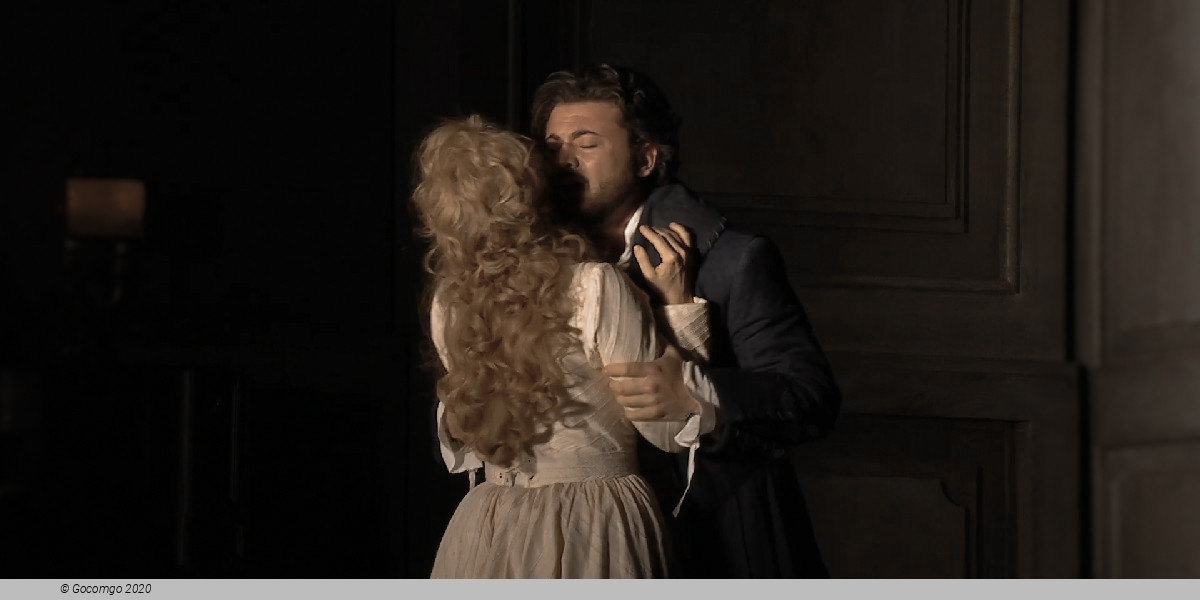
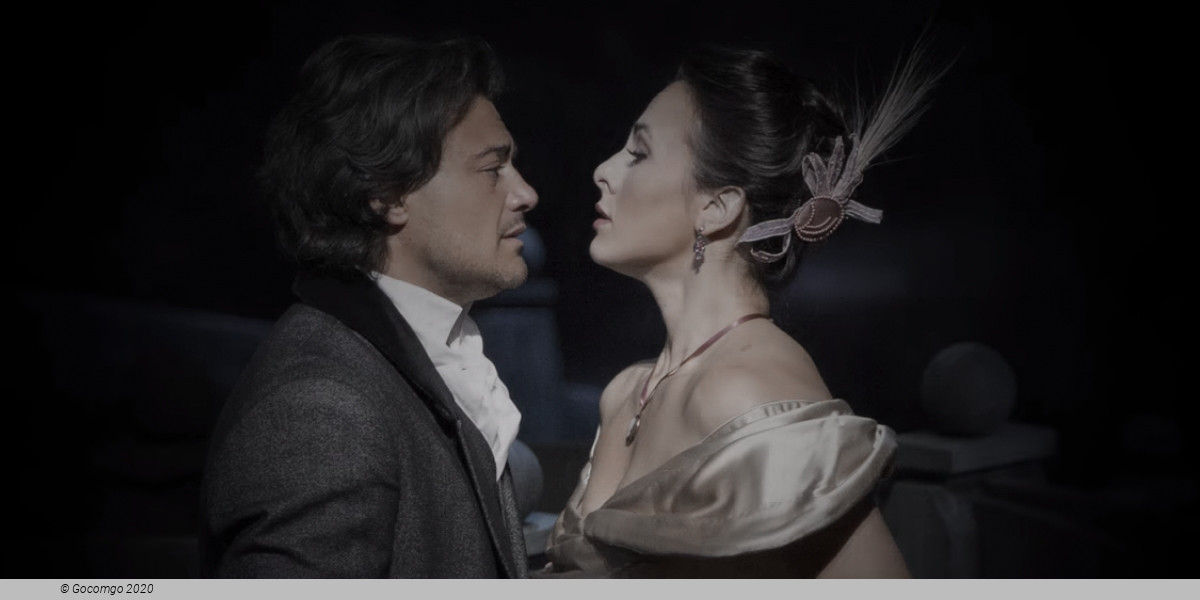
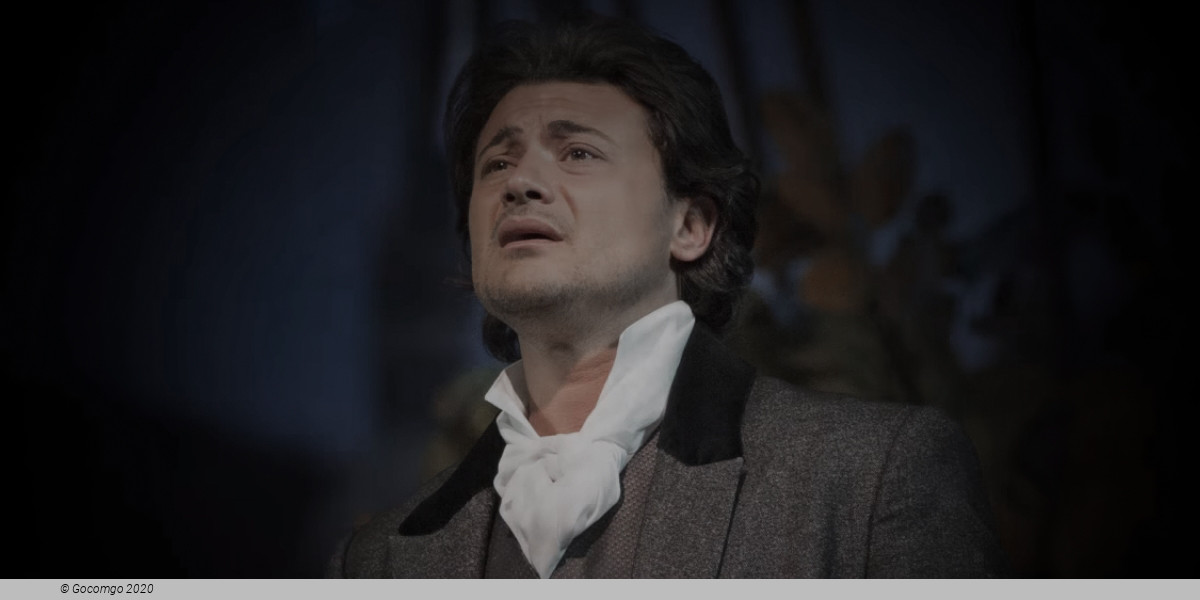
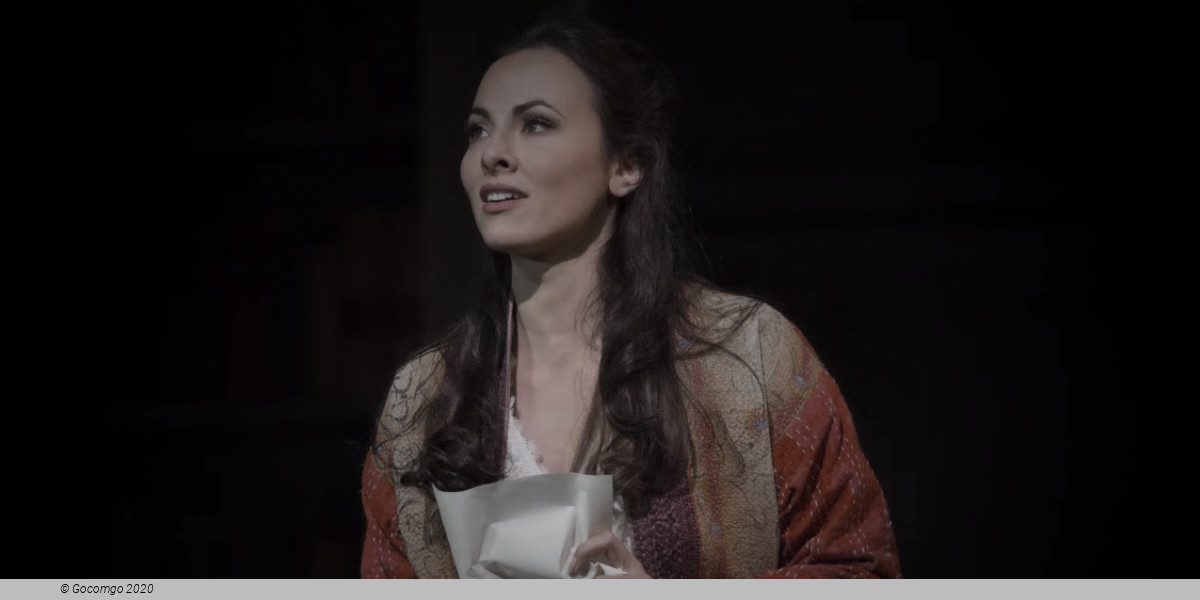
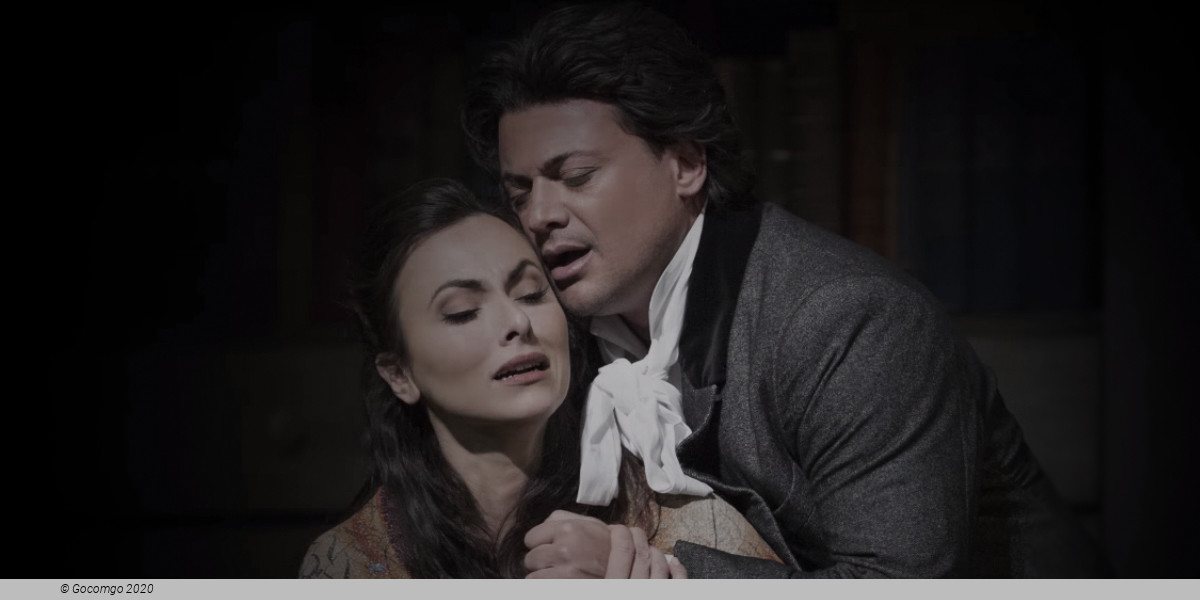
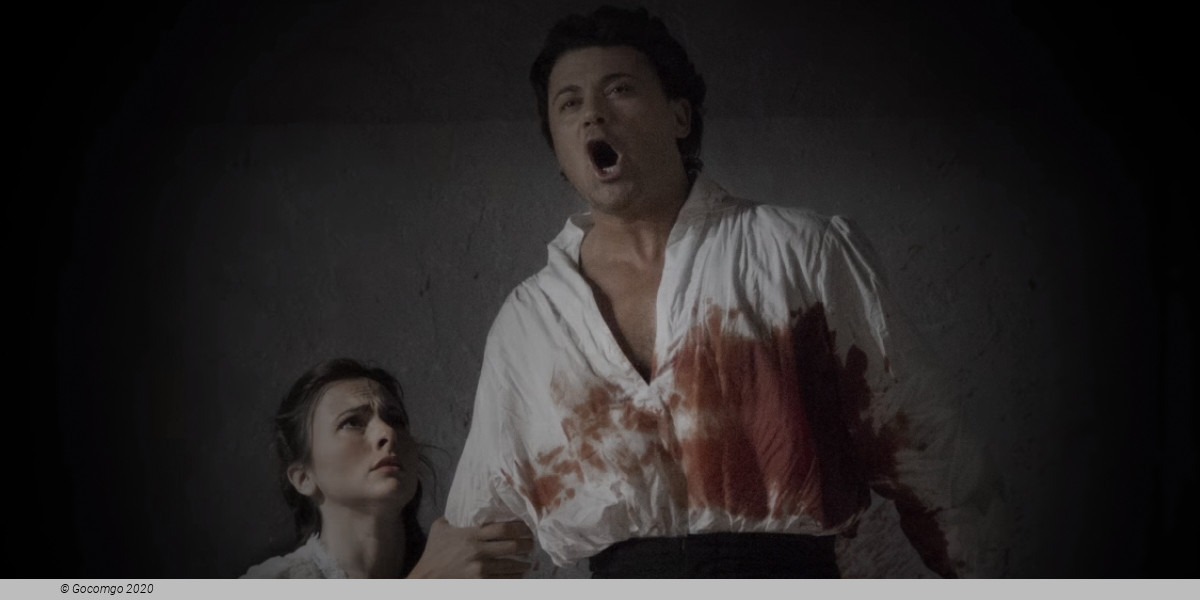
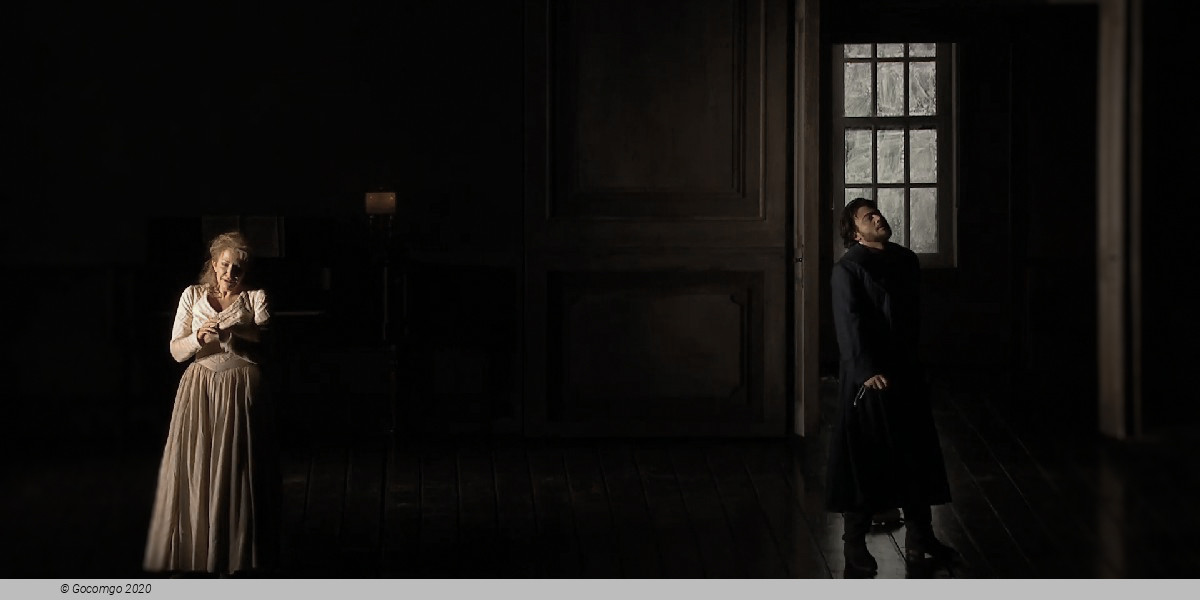
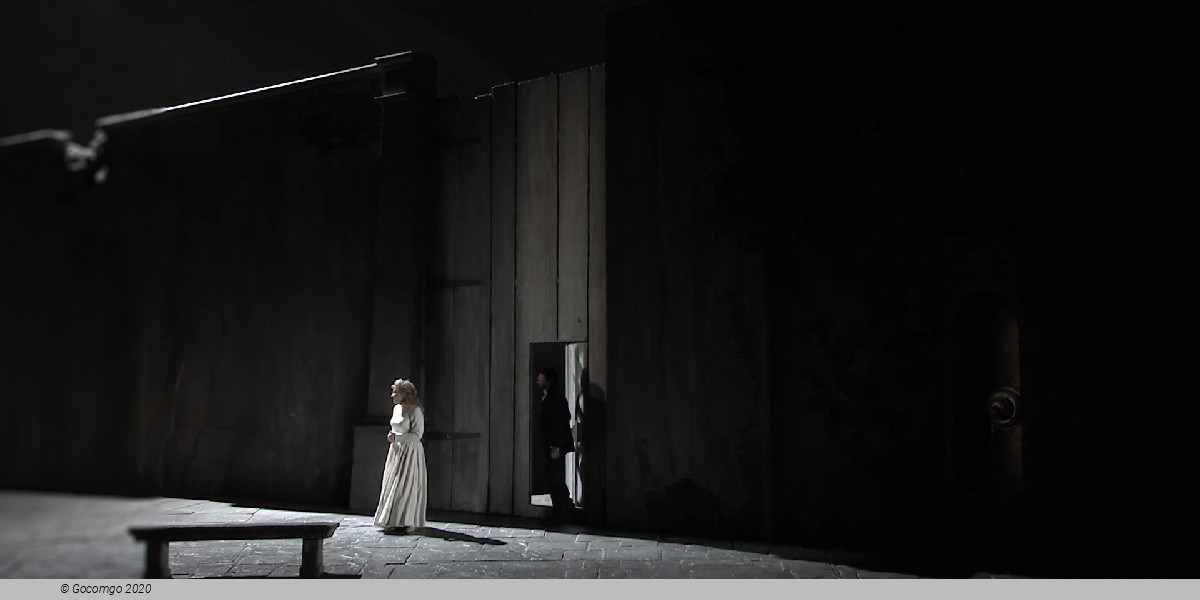
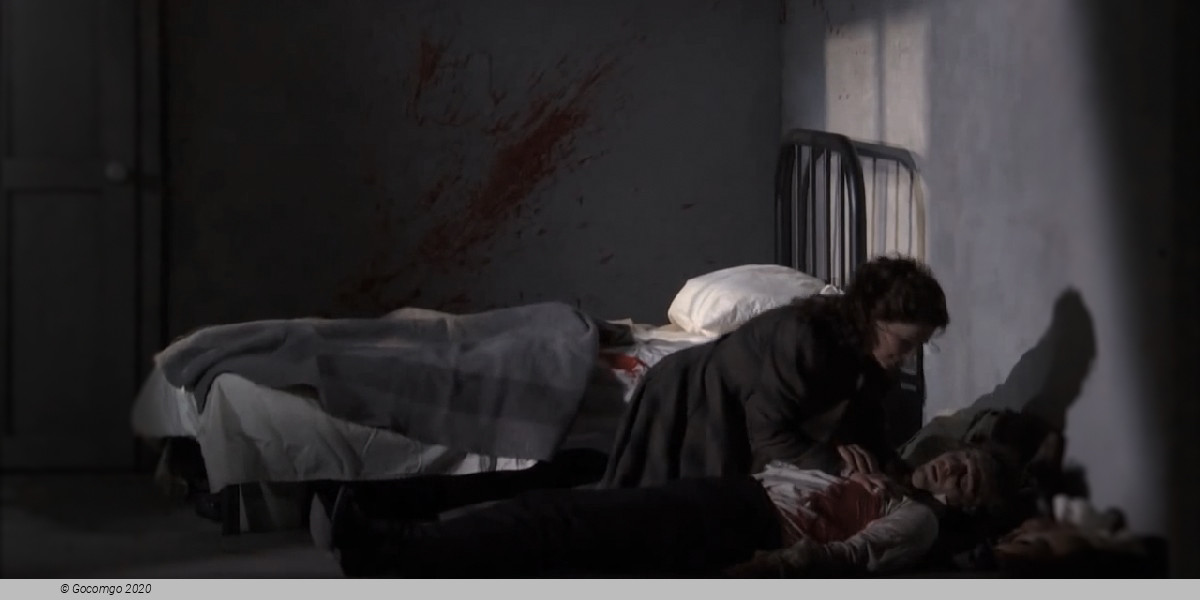
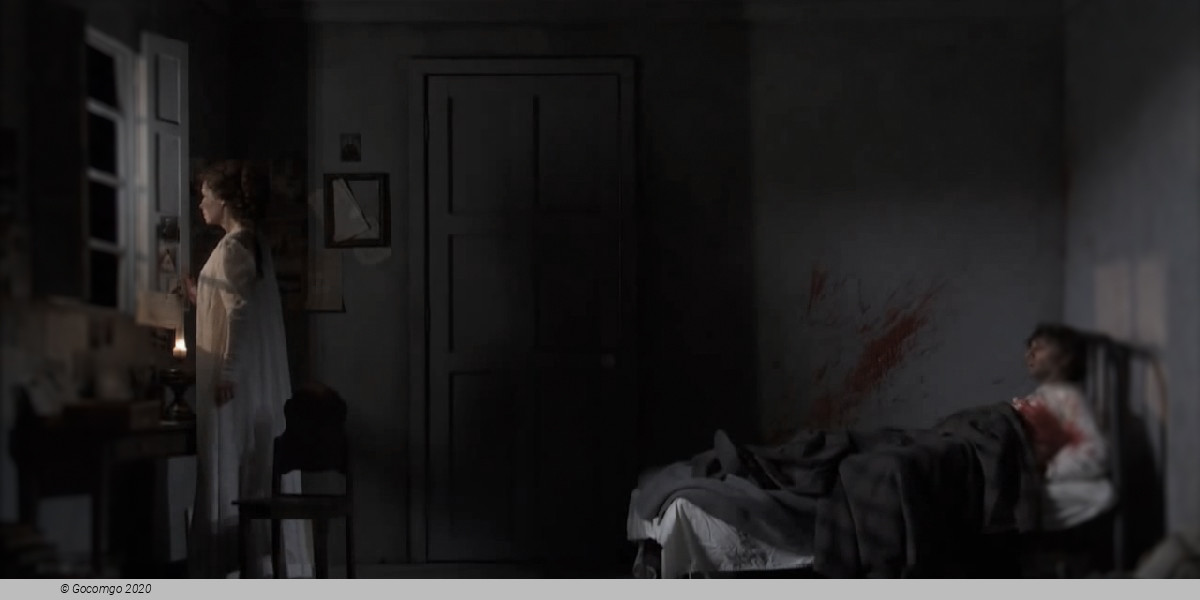
 30 Lincoln Center
30 Lincoln Center